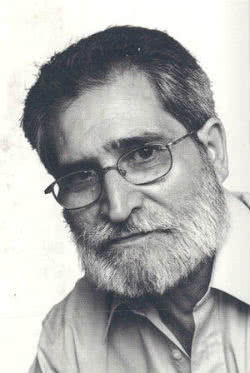Utopia is a Greek word meaning "nowhere" and was used as the title of the book by writer, humanist and statesman Thomas More (1478-1535).
The work was published in 1516, nearly three decades after the discovery of America, to point out the ideal society.
Summary and characteristics of the work
Utopia describes an imaginary republic ruled by reason and aims to contrast with the conflict-ridden reality of European politics at the time.
The book Utopia, in fact, goes back to an imaginary island in topics considered current until today, such as peace, war, finance, power, colonization and economy.
More, who was an English diplomat, would have written Utopia in May 1515 in the intervals of negotiations in Flanders to defend the interests of London merchants.
At the time, there was a dispute between the Kingdom of England and the Prince of Castile, Charles. It revolved around the Dutch ban on the import of wool made in England.
Although the story takes place on an imaginary island, Thomas More describes several actual passages from the negotiation and uses the book to criticize King Henry VIII. Other European states, such as France, do not escape criticism.
The island imagined by More is perfect not only in its political conception, with citizens enjoying the efficiency of the State. Religion also portrays the ideal of treatment among men.
Both cases differ from what happens in Europe, which still uses colonization to impose the Christian religion.
More does not fail to criticize the eagerness for conquest, considering that Utopia it is portrayed only 24 years after the discovery of America, now dominated by the British.
The author also makes strong criticisms of the Army and the glory bestowed on statesmen at the expense of the blood of their subjects.
Among the many axes of criticism, corruption fueled by money does not go unnoticed by More.
For the author, the administrator who is not corrupted by money performs better and, therefore, Utopia, money and material riches have no value.
Check the entire work by downloading the pdf here: Utopia.
Excerpts from the Work
The invincible Henry, King of England, eighth in name, prince adorned with all the virtues of a great monarch, had just had a controversy. very important with the serene King of Castile, Charles 1 and sent me as ambassador to Flanders, in order to negotiate this dispute and reconcile the parties adverse effects. I was the companion and colleague of the incomparable Cuthbert Tunstall, whom the king had recently named Maitre des Rôlel with the approval of all.
A ruler who lives alone in luxury and pleasure, while all around him live amidst suffering and lamentation, will be acting as a jailer rather than a king. Like an incapable doctor, who does not know how to treat an evil but for a greater evil, the sovereign who only knows how to govern his subjects depriving them of all the comforts of existence, openly acknowledges that he is incapable of commanding men free.
The main functions of priests are: to preside over the ceremonies of worship, to order the liturgy, and to serve as censors of public morality. It is considered a source of great shame for one to be summoned to appear before them and to be reproached for not leading an honorable life. But as the priests' task is only to advise and warn, correction and punishment are left to the prince and magistrates. Priests, however, can exclude—and do exclude—from the ceremonies of worship individuals considered exceptionally bad. Hardly any other punishment could be more dreaded than this one. Being excommunicated is a great disgrace and means being tortured for fear of damnation. Not even his body is safe for long, for unless he can convince the priests of his repentance, he will be arrested and punished by the senate as ungodly..
The city is made up of families, which constitute, as is most often the case, groupings united by kinship ties. The girls, after they are married, go to live with their husbands. Male children and grandchildren remain in the family and owe obedience to the eldest relative. If the latter is reached by senility, his place is taken by the family member whose age is just below his own. In order to prevent the city from becoming too big or too small, it has been established by decree that there cannot be more than six thousand families, not counting those who live in the countryside around the city, each family having between ten and sixteen members adults. There is no attempt to control the number of children in a family and the number of adults is controlled by transferring from a house where there are too many adults to another where there are too few.
Who was Thomas More?
Thomas More was an English humanist writer and statesman. He was born on February 7, 1478 and was the son of a London judge.
He attended Latin school, but at age 12 receives a scholarship that would take him to Oxford.
He studied Latin, Greek and legal education. He graduated in law and, in 1504, was chosen as a member of the English Parliament.
He was married twice and had five children. In 1521 More was knighted and, in 1523, rose to the position of President of the House of Commons, becoming Chancellor of the Duchy of Lancaster in 1525.
In 1529 he became lord of the Duchy of Lancaster and was directly pressured by King Henry VIII, who was breaking with the Catholic Church in Rome.
The magistrate declared himself supreme head of the Church of England. So he founded the Anglican Church to obtain a divorce from Catherine of Aragon and marry the queen's lady-in-waiting, Anne Boleyn.
More was tried and convicted of treason, being executed on July 6, 1535.


